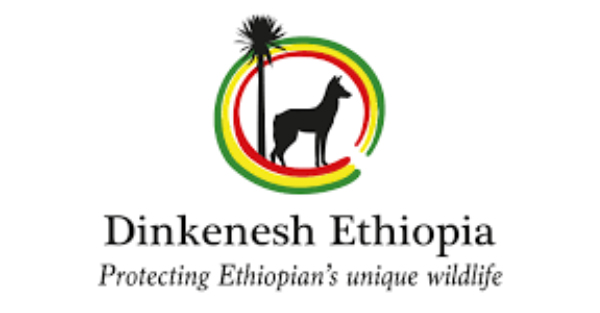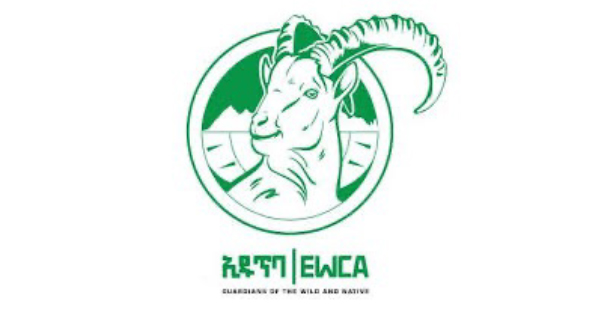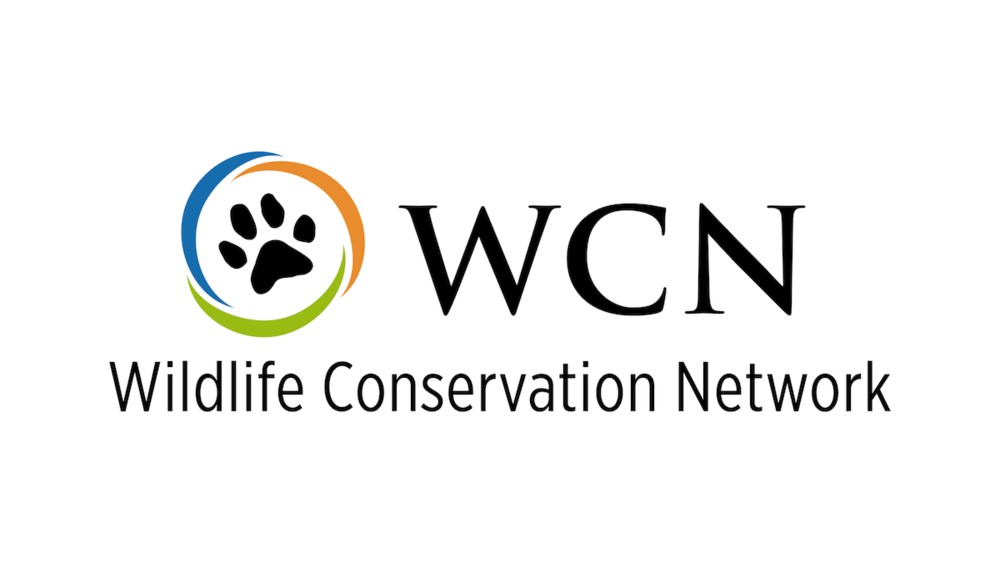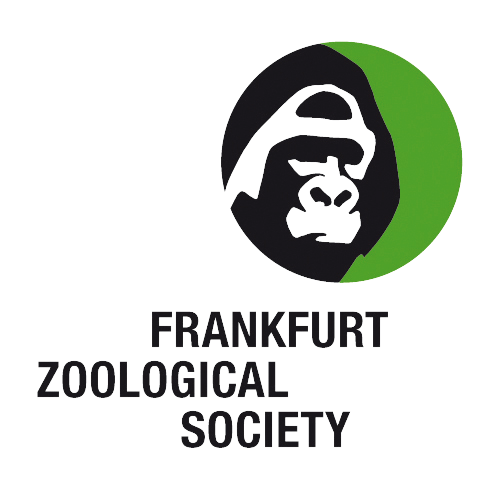The Ethiopian Wolf Conservation Programme (EWCP) is a partnership between WildCRU, Dinkenesh Ethiopia, and the Ethiopian Wildlife Conservation Authority, in collaboration with the Oromia Forest and Wildlife Enterprise and Amhara’s Environment, Forest and Wildlife Protection and Development Authority. Founded by Claudio Sillero in 1995, EWCP has been working to protect Ethiopian wolves – Africa’s most-threatened carnivore – and their unique Afroalpine habitat for 30 years, with the support and cooperation of local authorities across Ethiopia.

CONSERVATION CONTEXT
The Ethiopian wolf (Canis simensis) is not only Africa’s most threatened and rarest carnivore, but also the rarest canid species in the world. With an estimated 454 adult individuals remaining, spread across 99 packs in only 6 isolated populations, it is found nowhere else on the planet. These unique Afroalpine enclaves are also home many other endemics – from the giant molerat (Tachyoryctes macrocephalus) to the mountain nyala (Tragelaphus buxtoni). The Ethiopian wolf is an icon of Ethiopia, as well as a flagship species for the preservation of this unique habitat.
The wolves face numerous challenges to their ongoing survival. These include the spread of deadly diseases (epizootics), such as rabies and canine distemper virus (CDV), contracted from free-ranging domestic dogs which roam into wolf habitat from nearby communities. Likewise, the encroachment of agricultural substance farmland reduces the availability of suitable wolf habitat, as well as forming ‘hard barriers’ to the dispersal between the isolated populations. The range currently occupied by Ethiopian wolves is a fraction of the habitat potentially suitable for the species, of which 60% has already been converted to agriculture.
Other threats are also posed by the proliferation of livestock grazing; reducing the food availability for diurnal rodents (the wolves’ primary prey species); direct persecution and human-wildlife conflicts with local communities – chasing away wolves, interfering with dens, and sometimes killing of wolves; as well as the increase of traffic on mountain roads.
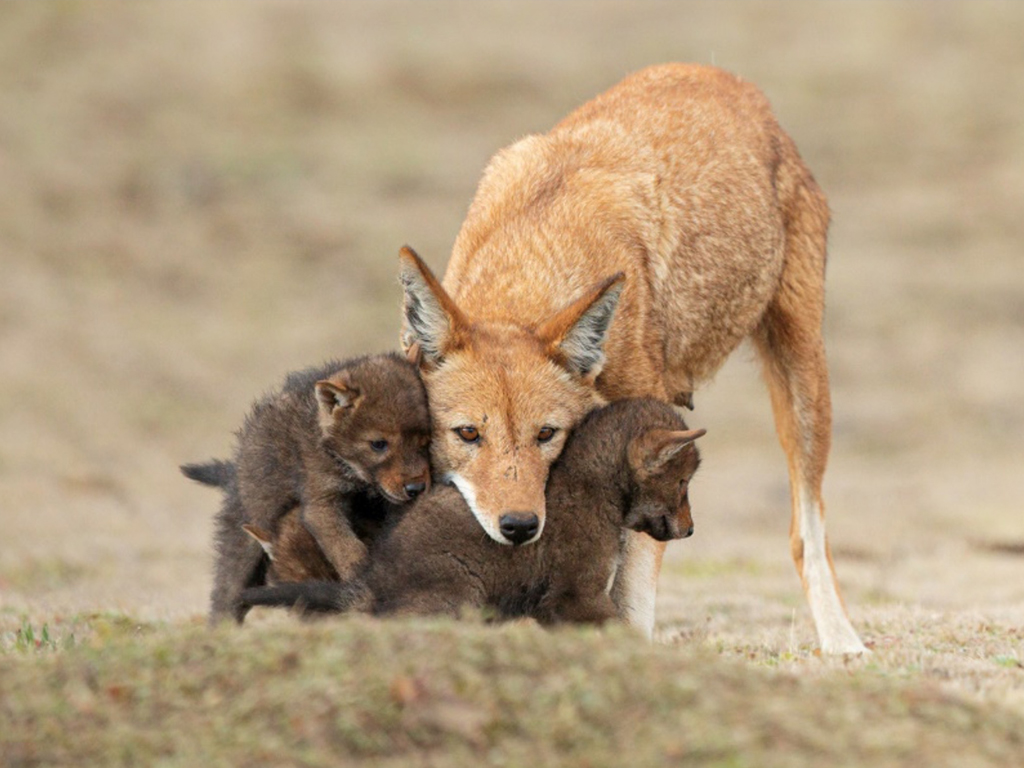
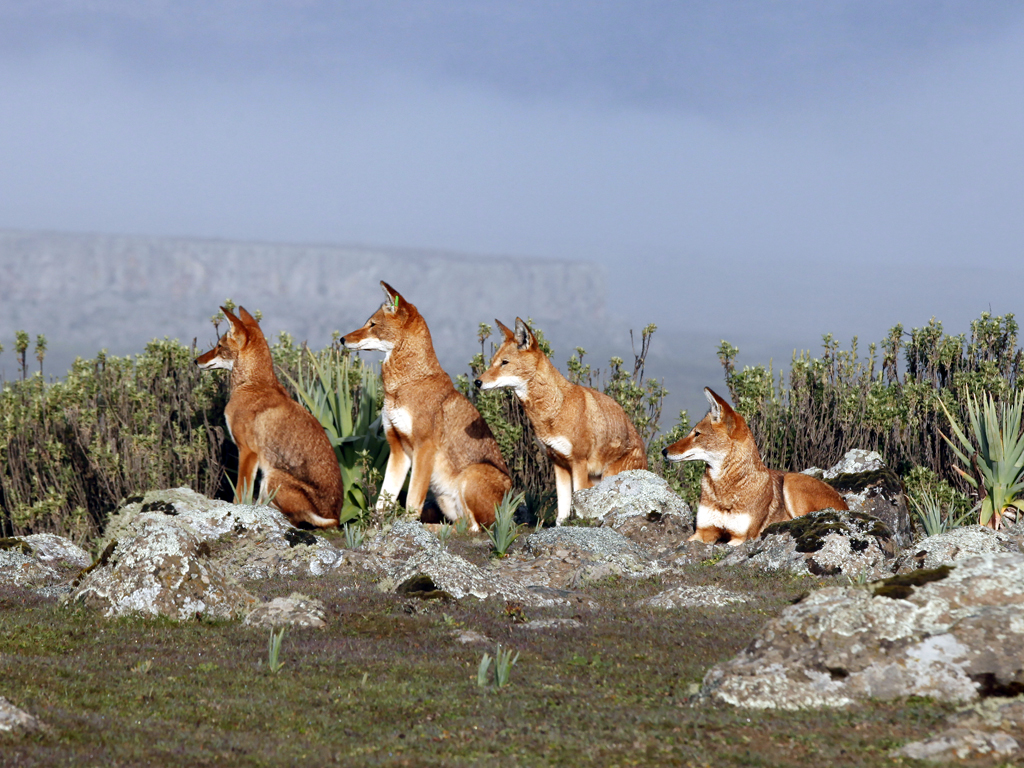
EWCP is the longest-running conservation programme in Ethiopia, working for over three decades to fulfil our vision of “safeguarding the future of natural habitats for the benefit of wildlife and people in the highlands of Ethiopia”.
Ethiopian wolves are emblematic of Ethiopia’s biodiversity and the urgent need to protect its wild landscapes. At EWCP, we believe in science-led, holistic conservation. Our approach combines research, policy advocacy, community engagement, and capacity building to protect Ethiopian wolves and their Afroalpine home.
Our philosophy:
Long-term commitment: Building trust and understanding ecological systems with a continuous on-the-ground presence.
Conservation through coexistence: Reducing conflict, supporting sustainable livelihoods, and restoring habitats with local communities.
Evidence-based action: Implementing conservation strategies based on rigorous field research, including population dynamics, disease monitoring, and vaccine provision.
Our methodology includes intensive monitoring of populations, disease and other threats, vaccination campaigns, habitat protection, and conservation translocations to support small populations and promote recolonization.
EWCP is engaged in a range of projects including:
Monitoring and Research: Detecting changes of status and threats in all wolf populations and finding solutions to conservation problems.
One Health: Managing diseases, with benefits for people, wildlife and domestic stock.
Biodiversity Friendly Futures: Fostering coexistence of wolves and people, and mechanisms to fairly share the costs and benefits of conservation.
Conservation Translocations: Managing populations to boost recovery, avoid extinctions, and expand the species range.
Living with Wolves: Building a future where wolves and people in the Afroalpine highlands coexist.
All projects incorporate awareness building with stakeholders and capacity building to foster the environmental sector in Ethiopia.
All EWCP’s Annual Reports are available to read here.
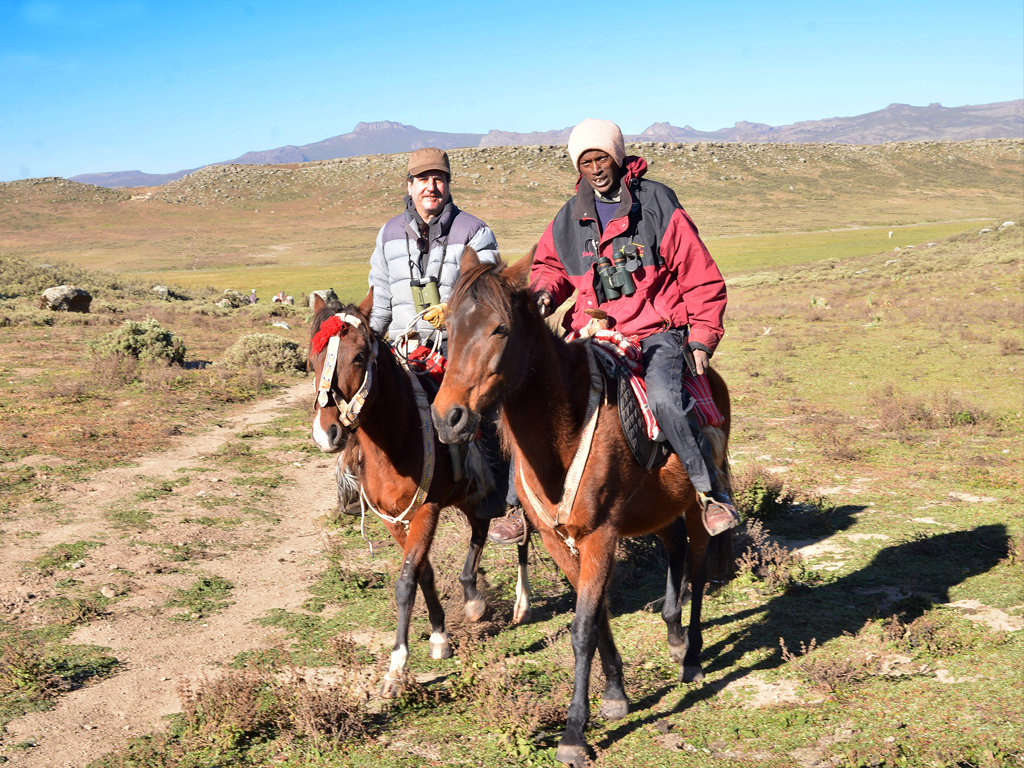
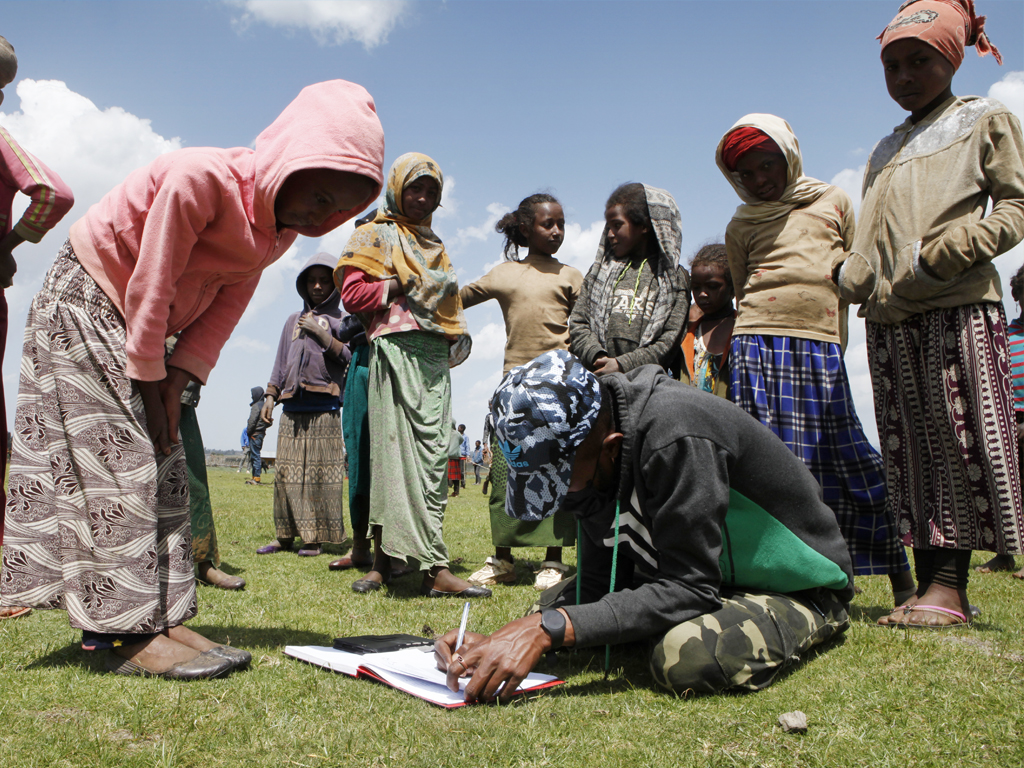
PROGRAMME MEMBERS
The EWCP team comprises over 50 staff across Ethiopia. WildCRU’s Prof. Claudio Sillero is EWCP Founder and Director, Dr. Jorgelina Marino is the programme’s Science Director, Dr. Sandra Lai is Senior Scientist and Dr. Henry Anderson-Elliott is Programme Assistant.
RECENT PROGRAMME News
For more insight into EWCP recent news see here or click on the links below:
PROGRAMME PARTNERS
We work closely with local and regional governments, community conservation areas, national and international researchers, and the institutions listed below. Together, these partnerships have expanded protected areas, reduced disease-related mortality, and influenced national policies to protect this flagship species and its unique Afroalpine ecosystem.
